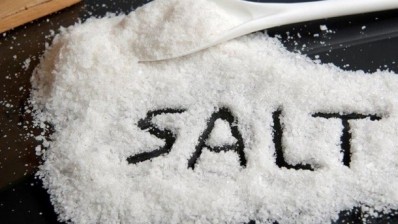Dispatches from ADA Conference 2011
Are we eating too much sodium? Who cares, say 59% of Americans

The first, conducted by the International Food Information Council (IFIC), found that 59% of the 1,003 US adults surveyed were “not concerned” about their sodium intake, despite the fact that most Americans are consuming twice as much sodium as recommended.
Meanwhile, 70% did not know what the dietary guidelines for sodium were.
Although respondents with high blood pressure were slightly more clued up, more than half (56%) of this more vulnerable group still didn’t know what sodium guidelines were, which was surprising given the amount of media attention devoted to sodium reduction in recent years, admitted IFIC.
While 38% agreed limiting sodium was an important factor in a healthy diet, far more felt eating more fruits and vegetables (70%), limiting sugar (48%) and monitoring calories (45%) were more important. A significant proportion (39%) also believed taste suffered when sodium was reduced.
A significant proportion of people don’t think they need to do more
The second survey – of 754 US adults conducted by Mintel International for the American Dietetic Association (ADA) – also showed high levels of complacency amongst consumers, admitted ADA spokesperson Jeannie Gazzaniga-Moloo.
“The findings [which show 49% of consumers believe they are already doing everything they can to achieve a healthy diet] show a significant proportion of people don’t think they need to do more, despite increasing rates of obesity, diabetes and other nutrition-related health conditions.
“Despite what people say, virtually all indicators show half the American public is not in fact doing all it can to achieve a healthy diet… We need to communicate to everyone the positive message that change is necessary and possible.”
More berries, omega-3s…
On the plus side, 31% of respondents claimed to have increased consumption of low sodium foods in the past five years, although this figure was not actually very high considering that the average American consumed twice the daily recommended amount of sodium, said Gazzaniga-Moloo.
A reasonable percentage also claimed to have increased consumption of berries (48%), low-fat foods (43%), omega-3s (39%) and lower sugar foods (34%) in the past five years.
Where do consumers learn about nutrition?
As to where consumers typically learned about nutrition, TV remained the most popular source, but was closely followed by the internet, which barely featured when consumers were asked the same question a decade ago, said Gazzaniga-Moloo.
“As we move from regularly fact-checked forms of media such as magazine articles to the internet as a primary source for nutrition information, it is becoming increasingly important that consumers learn to distinguish between a nutritionally sound website and a fraudulent one.”
















